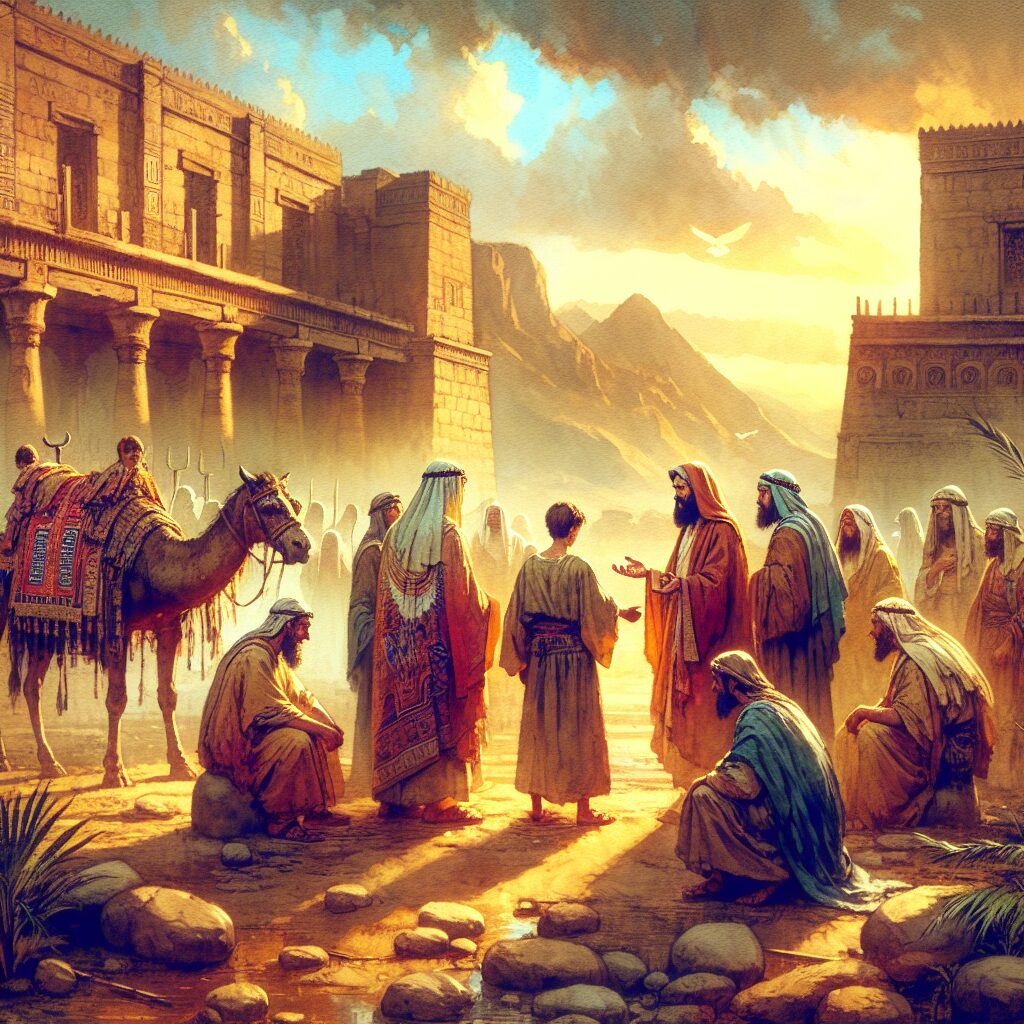
Bible Verse
“When the days of mourning had passed, Joseph said to Pharaoh’s court, ‘If I have found favor in your eyes, speak to Pharaoh for me. Tell him, My father made me swear an oath and said, ‘I am about to die; bury me in the tomb I dug for myself in the land of Canaan.’ Now let me go up and bury my father; then I will return.'” – Genesis 50:4
Reflection
This verse finds itself nestled in the emotionally charged aftermath of Jacob’s death. Here, Joseph is seeking permission from Pharaoh’s court to honor his father’s wishes by burying him in Canaan. This is a moment that could easily pass as merely logistical, yet it reveals profound truths about faithfulness, integrity, and honoring commitments.
Joseph, a man whose life has been a tapestry woven with faith, forgiveness, and strength, once again exhibits his unwavering commitment to family and the promises he holds sacred. He finds himself standing before Pharaoh’s court, a symbol of worldly authority, asking for the opportunity to fulfill a personal and spiritual obligation. This moment is poignant because it underscores how faith calls us to respect and honor the bonds we share with those we love, even against the backdrop of power and status.
Reflecting deeper, this act of faithfulness is a mirror for our own lives. It reminds us that our commitments to others, particularly those tied by the heart, are vital facets of living a life that reflects the love and integrity taught by God. Joseph’s request also speaks to the importance of cultural and familial traditions. In requesting to bury Jacob in Canaan, Joseph is not merely attending to a familial duty but also connecting with the promises made by God to Abraham, Isaac, and Jacob. It’s a journey into honoring roots, heritage, and faith—a model of resilience in preserving one’s spiritual heritage amidst challenges.
Moreover, Joseph’s actions offer a beautiful lesson on the respect between authority and servitude, echoing the biblical teaching that true leadership is built upon humility and grace. By seeking permission, rather than demanding it, Joseph displays respect and humility, virtues that are so essential yet often overlooked in our pursuit of personal autonomy.
In seeking Pharaoh’s approval, Joseph also embodies trust in God’s plan. Despite being in a foreign land, serving as a high-ranking official, Joseph does not forsake the responsibilities to his faith or family. It’s a testament to the fact that, regardless of where life takes us, we must remain anchored in our values and committed to the divine promises that guide us.
Closing Thought
Joseph’s example invites us to act with faith and integrity, honoring our commitments with grace and humility. It encourages us to be custodians of our promises, knowing that in fulfilling them, we honor God, family, and the sacred bonds that connect us all in love and faith.